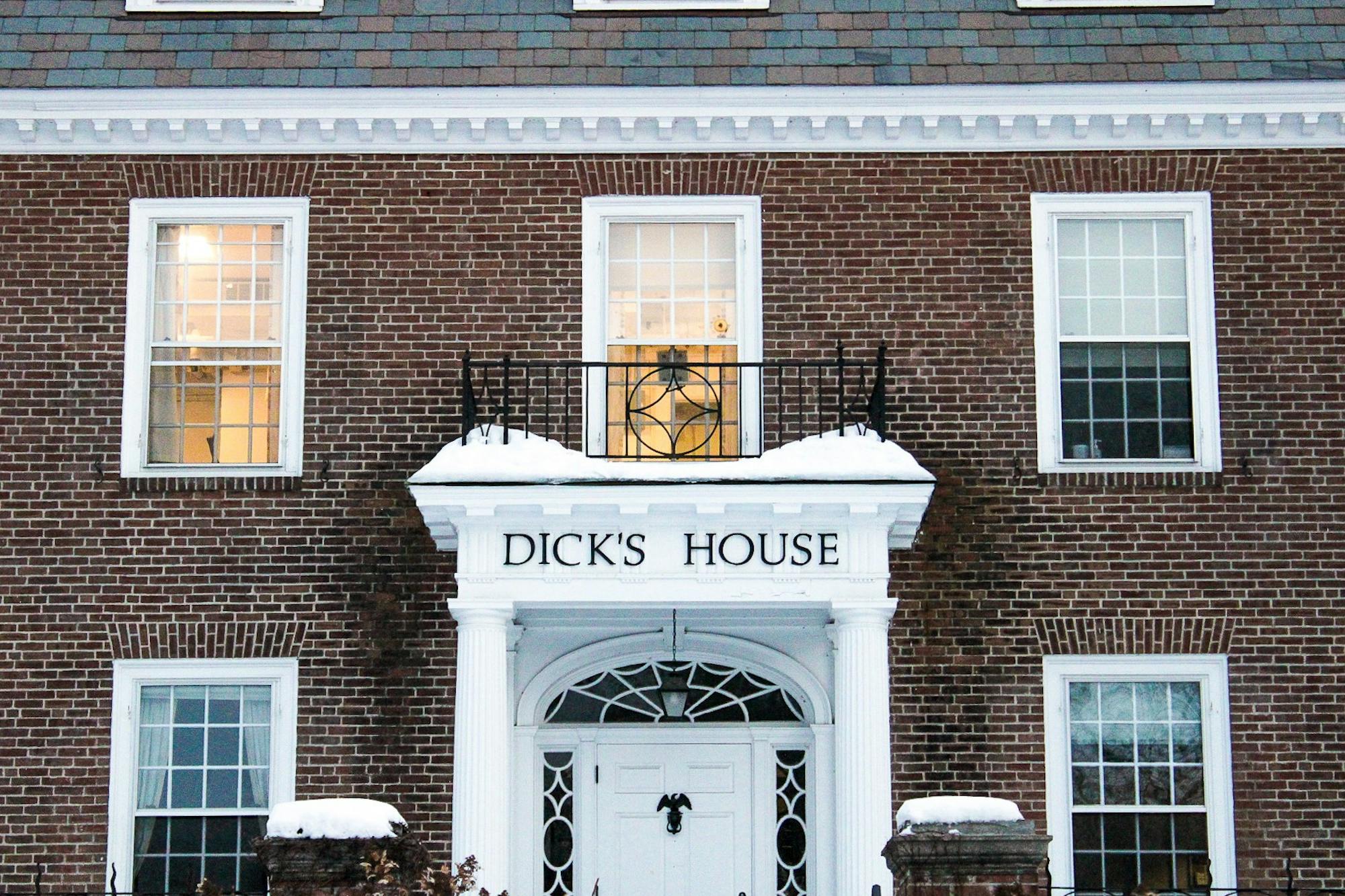Though the prevalence of COVID-19 on campus is uncertain — as the College has not required students to submit test results since April — students have noted an increase in the number of cases on campus this winter compared to the fall. This contrasts with national reported case counts, which have remained relatively stable. Students have also noted issues in clarity and academic accommodations in the College’s COVID-19 policies.
According to the College’s COVID-19 dashboard, as of Feb. 7, there were 58 COVID-19 cases reported to the College that were considered active in the past seven days, meaning that the individual was in isolation or was beyond that period but was still symptomatic. However, because students are not required to submit COVID-19 test results, the dashboard reflects only the cases that community members have self-disclosed to the College, and therefore “no longer presents an accurate picture of COVID-19 at Dartmouth,” according to the page.
Scott Sorensen ’26 said he believes that case counts on campus have increased this winter. Similarly, a student from the Class of 2025 said that they contracted COVID-19 at the end of January and noted that they believe more students are getting COVID-19 this term compared to the fall. The student spoke with The Dartmouth on the condition of anonymity as they noted that they did not isolate in place in accordance with College policies.
“Half of the group of people I hang around with had COVID [this winter],” the student said. “I didn’t know anyone in the fall who really got COVID.”
Biological sciences professor Lee Witters said he believes students are not testing regularly in order to avoid isolation, which is contributing to a “major underestimate” of known cases on campus. He said that this phenomenon is “disturbing.”
“There are vulnerable people in a community … being in a community carries with it some responsibility,” Witters said. “I understand why people wouldn't want to be isolated and how it would interrupt their classes, their learning and what they do outside the classroom … but that responsibility to the community transcends that.”
Geisel School of Medicine professor Justin Kim said that while he believes that there is “not a lot of public testing” this year — which may contribute to the low case count — he still thinks that cases are lower than previous winters, as there is now a “degree of immunity in the community.”
Kim noted that the discrepancy between reported case counts and students’ anecdotal observations may be partially explained by both the reduced prevalence of testing and the COVID-19 “clusters” that can form in living areas or friend groups.
“Where people live in closer quarters than in other parts of the world, it’s certainly a possibility that you may be seeing this dorm have more cases or that dorm have more cases at a certain period of time,” Kim said.
Students and faculty reported mixed levels of flexibility with regard to College policies over quarantine and academic accommodations for students who test positive for COVID-19.
Sorensen said that when he contracted COVID-19 in the second week of winter term, he emailed Dick’s House to inform them of his positive test results but was offered very little advice about what to do next.
“[Dick’s House] seemed nice enough over email, and was obviously very communicative, but they didn’t really give me any resources,” Sorensen said. “I still had to pick up my meals, I had to figure out what to do with my roommate and that whole situation, and it wasn’t a great response.”
The anonymous student agreed and said that there is a lack of resources and outreach by the College about quarantine policies, noting that they were unable to find any “clear instructions” online from the College.
The student added that one of their professors did not offer any lecture notes or recordings even after being notified of the positive COVID-19 test result, so they “had to show up” to avoid falling behind in the class. The student noted that their symptoms were more serious than expected, as they experienced nausea which made it difficult to complete daily tasks like walking to get food.
“I just had to … sit in the back with a mask and I was burning up with a fever,” the student said, adding that the lack of flexibility “made it tough to stay on top of [their] work.”
Witters noted that he records all of his classes for students as he teaches in the Life Sciences Center, which provides him an “advantage” by allowing students to rewatch the classes at their own time.
“We’ve had several [COVID-19] cases in my class, although everyone who reported those have stayed away and stayed in isolation,” Witters said. “Even people who were exposed and still had negative tests alerted me to that and stayed away for at least a day or two.”
However, Witters noted that while students can “keep up” with the basic material taught in class, they are still missing out on actively participating in discussions during class.
Kim said that students should stay up to date with their COVID-19 vaccines and avoid attending big parties and gatherings when feeling sick, noting that COVID-19 still poses a “threat” to immunocompromised people. He also said that choosing to wear a mask is “never the wrong answer,” especially in the winter to protect the mask-wearer from COVID-19 as well as other viruses like the flu and the common cold.



